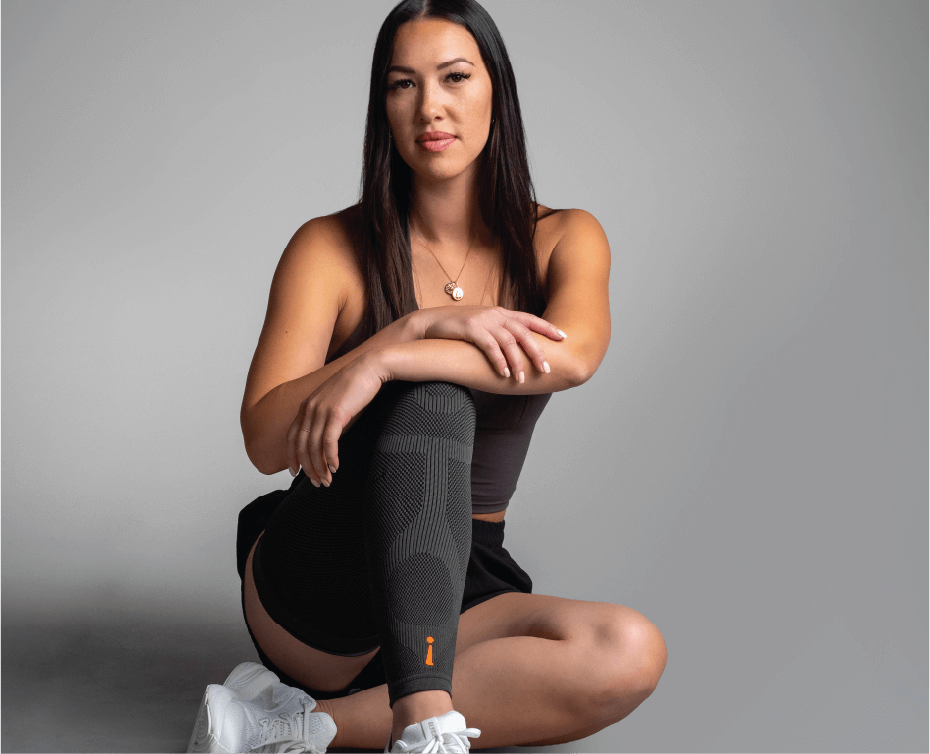Medically Reviewed By | Johannah Gregg, DNP FNP-C
Carpal tunnel syndrome is sure to put a damper on your favorite daily activities, but it doesn’t have to. Despite the unfortunate side effects of carpal tunnel syndrome and the discomfort that comes with them,
Fortunately, multiple possible home remedies and medical treatments can help provide some pain relief. By incorporating the right strategies in your treatment plan, you can experience relief and feel more empowered to do all your favorite activities.
What Is Carpal Tunnel Syndrome?
Carpal tunnel syndrome (CTS) results from an inflamed or pinched nerve in the wrist — most often the median nerve. A pinched nerve in the wrist can happen because of a range of daily activities.
Some common causes of carpal tunnel syndrome include repetitive tasks such as playing an instrument, using hand tools, and even performing manual labor. Many consider typing a common cause, but the medical community still sees some debate about whether this is true.
In some cases, carpal tunnel nerve damage can result from another condition, like rheumatoid arthritis or tendonitis.
Symptoms of carpal tunnel syndrome include:
- Numbness or tingling in the fingers
- Weakness in the wrist
- Pain or discomfort in the wrist or hands
If you think you have carpal tunnel syndrome, you should consult your doctor to get an accurate diagnosis and discuss treatment plans.
How To Relieve Carpal Tunnel Pain
Unfortunately, there is no cure for carpal tunnel syndrome. However, you can take steps to alleviate the pain and discomfort to go about your daily activities. The following are some of the best ways to find temporary relief for carpal tunnel symptoms.
Rest
Repetitive tasks like playing an instrument or using power tools can take a toll on your wrists, especially if you are already experiencing the symptoms of carpal tunnel. You can provide yourself some relief by taking time to rest during the activities. If you plan on playing for an extended period, try to include a break every 15 to 20 minutes.
However, if you are experiencing pain or discomfort, it is best to take a break from activities that put stress on your wrist until the discomfort disappears. On top of rest, being mindful of how tightly you grip tools and how forcefully you use your wrists can help lower your risk for pain.
Wrist Support
A wrist splint can help stabilize the wrist to either prevent or minimize wrist pain. You can wear a wrist splint whenever it seems helpful to promote the health of your median nerve. Some choose to wear a splint at night, when symptoms seem to be at their worst, while others wear the splint anytime they do repetitive tasks that stress the wrists.
Stretching
Stretching is one of the most underrated pain relief methods, and the benefits carry over to relieving carpal tunnel syndrome. Stretching helps take some of the stress off your median nerve by loosening the muscles and ligaments in the wrist. Along with stretching, heat therapy is a great supplement to relieve tension in the wrist and provide relief.
Corticosteroids
A common treatment for carpal tunnel is the injection of a corticosteroid, like cortisone, directly into the wrist. Steroid injections help reduce wrist inflammation, which is a significant factor in placing pressure on the median nerve.
Corticosteroid injections are more effective than taking corticosteroids orally. Your healthcare provider might use an ultrasound to determine where to inject the medication.
Surgery
If you experience a severe case of carpal tunnel syndrome, your doctor may recommend the most invasive treatment option — surgery. Carpal tunnel surgery or carpal tunnel release involves cutting a portion of the ligament around the nerve. Cutting this ligament helps open the space and relieve some pressure on the pinched nerve.
Depending on the severity of the condition, you may experience total relief or reduce the effects of carpal tunnel syndrome. Either way, either endoscopic surgery or open surgery is an effective option if none of the other CTS treatments seem to be making a difference. You can discuss this with an orthopedic surgeon to see if either is a good option for you.
Over-the-Counter Medications
Don’t get concerned yet — surgery is often the last resort for minimizing the unpleasant effects of carpal tunnel syndrome. Non-steroidal anti-inflammatory drugs (NSAIDs), like ibuprofen, naproxen, or aspirin, can also provide relief by reducing the production of chemicals that cause inflammation. Taking these over-the-counter (OTC) pain relievers can be helpful for short-term relief.
Wearable Pain-Relief Products
Not everyone is a fan of OTC medication, and even fewer people want to pursue further medical intervention. Fortunately, Incrediwear provides an alternative to over-the-counter medications and advanced treatment options.
An Incrediwear wrist sleeve helps to serve two vital functions — it helps support your wrist to reduce the pressure on the nerves, and it helps improve blood flow to the wrist. This enhanced blood flow optimizes the body’s natural healing process by allowing more nutrients and oxygen into the area. As a result, you enjoy less swelling, inflammation, and pain for temporary relief.
Find Some Relief for Your Carpal Tunnel Pain
Despite the frustration that dealing with carpal tunnel pain can bring, there are several ways that you can find relief. At Incrediwear, we are on your side when it comes to managing pain. Providing yourself with the proper support can reduce the strain on your wrist and relieve some of the pain that comes with carpal tunnel.
Whether you are struggling with pain in your wrists, knees, or lower back, our wearable recovery products will help you increase blood flow to the target area and experience relief. No matter where your pain or discomfort is, Incrediwear is here to help. Check out our selection of braces and sleeves to target your discomfort and take on your daily activities with ease once again.
Sources:
Carpal Tunnel Syndrome | Harvard Health
Carpal tunnel syndrome - Diagnosis and treatment | Mayo Clinic
Non Steroidal Anti-Inflammatory Drugs (NSAIDs) | Cleveland Clinic
Read more

Tennis elbow, also known as lateral epicondylitis, is a common injury involving the muscles and tendons surrounding the elbow joint. This painful condition can hold you back in your active or daily...

Medically Reviewed By | Johannah Gregg, DNP FNP-C If you’ve noticed pain and stiffness near one of your joints, it may be due to a condition called bursitis. In this article, we’re breaking down ev...






Leave a comment
All comments are moderated before being published.
This site is protected by hCaptcha and the hCaptcha Privacy Policy and Terms of Service apply.